Does Time Really Exist? Time Paradox, The Revolutionary Idea That Time Is Not Real & Doesn't Exist
Is Time Really Exist? The Time Paradox, The Revolutionary Idea That Time Is Not Real & Doesn't Exist
Subscribe to Daily Dose Of Fact - https://bit.ly/2Z4b0m0
The concept of time has always been a subject of fascination and controversy among philosophers and scientists.
Time is a fundamental aspect of our lives. Some believe that time is a fundamental aspect of the universe, while others argue that it is an illusion or a human construct.
Time is used to measure everything from our daily routines to the lifespan of the universe itself. But what if we told you that time might not actually exist?
In recent years, a growing number of scientists and physicists have started to challenge the traditional notion of time and propose alternative explanations. In this video, we will explore the idea that time might not actually exist, we will delve into the theories behind this mind-bending concept and what it could mean for our understanding of the universe.
To understand why time might not exist, we must first understand how we perceive it. What is time?
Time is a human construct that we use to measure the passage of events. It is based on the idea that there is a past, present, and future, and that events occur in a linear sequence from one to the other. But what if time is not linear, and events do not occur in a neat sequence?
However, despite its ubiquitous use in our daily lives, time is a complex and elusive concept that has puzzled scientists and philosophers for centuries. In this video, we will examine the idea that time might not actually exist, and explore some of the evidence and arguments that have been put forth to support this view.
One theory that supports the idea that time might not exist is called the block universe theory. According to this theory, the past, present, and future all exist simultaneously, like a block of space-time. This means that every moment in time exists and is equally real, and the concept of the present moment is simply an illusion. This theory suggests that the future is predetermined and that we have no free will since everything that will happen has already happened.
Another theory that supports the idea of time not existing is the idea of time dilation. This theory comes from Einstein's theory of relativity, which suggests that time is not absolute and can be affected by gravity and motion. This means that time can appear to move slower or faster depending on the observer's position and speed relative to the object being observed. This theory has been proven in experiments with atomic clocks and has practical applications in GPS technology.
The traditional view of time holds that it is a fundamental aspect of the universe, and that it flows uniformly and inexorably from the past to the future. However, this view has been challenged by a growing number of scientists and physicists who argue that time is an illusion or a human construct.
One of the most prominent proponents of this view is Julian Barbour, a British physicist and philosopher. Barbour argues that time is an illusion, and that the universe is made up of a series of "nows" that are all equally real. In other words, he claims that the universe does not have a past or a future, but only an eternal present.
One example of the concept of time not existing can be seen in the phenomenon of time travel. If time is not linear and events are happening simultaneously, then it might be possible to travel back or forward in time without changing the past or the future since they already exist. This idea has been explored in science fiction and has captured the imagination of people around the world.
If time does not actually exist, it would have profound implications for our understanding of the universe and our place in it. The idea that everything is happening simultaneously and that the future is predetermined challenges our basic assumptions about free will and the possibility of changing the course of events. It also raises questions about the nature of reality and the purpose of our existence.
The concept of time not existing raises many questions about our understanding of reality. If everything is happening at once, then what is the point of cause and effect? How can we understand the concept of the passage of time, such as aging or the decay of objects? These questions challenge our basic understanding of the universe and require us to rethink our assumptions about the nature of reality.
As we conclude this video, we must acknowledge that the concept of time not existing is still a theoretical idea that is subject to much debate and discussion. However, it is a fascinating concept that challenges our basic assumptions about the nature of reality and the universe. Whether time actually exists or not, it will continue to play a fundamental role in our lives and our understanding of the world around us.
-
 1:14
1:14
coredeeply
4 months agoTime Does Not Exist, but the Flow Does (Why Time Travel will never be possible)
8214 -
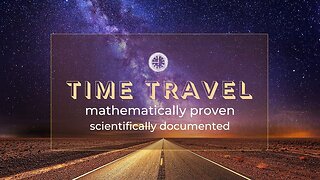 16:55
16:55
The Aquarius Bus
1 year agoTime Travel - mathematically proven & scientifically documented
529 -
![TIME IS AN ILLUSION - IT DOESN'T EXIST [Billy Carson]](https://hugh.cdn.rumble.cloud/s/s8/6/O/7/1/L/O71Ll.0kob.jpg) 11:35
11:35
Global Geopolitics Channel
11 months agoTIME IS AN ILLUSION - IT DOESN'T EXIST [Billy Carson]
13 -
 1:11:53
1:11:53
AlwaysAsking
3 years ago $0.01 earnedWhat is Time? - AlwaysAsking.com
175 -
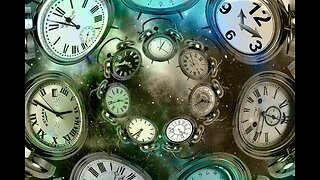 2:59
2:59
Retrospective Podcast
1 year agoIs Time Travel Possible?
1.39K -
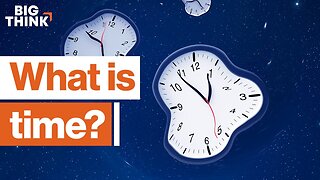 12:53
12:53
bigthinks
1 year agoTime: Do the past, present, and future exist all at once? | Big Think
1 -
 1:00:32
1:00:32
UFOS
9 months agoThe Possibilities of Time Travel
55 -
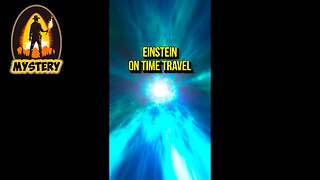 0:19
0:19
Famous People Who Changed The World
1 year agoWhat Einstein thought about Time Travel
141 -
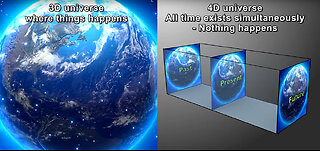 8:08
8:08
ADVANCED CIVILIZATION
1 year agoIs Time an Illusion? Does past, present and future exist simultaneously?
25 -
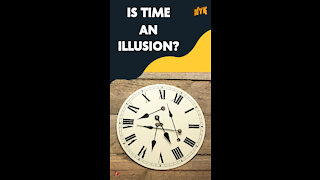 2:08
2:08
NowYouKnowEnglish
4 years agoWhat If Time Was An Illusion
8